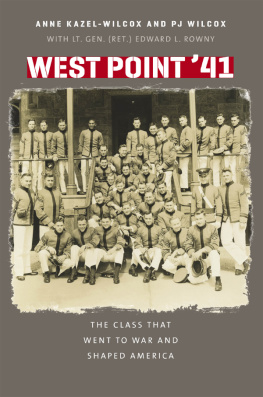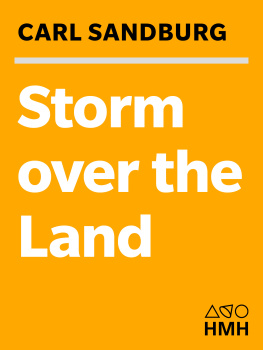Schaff - Before the Storm: West Point and the Civil War (Annotated)
Here you can read online Schaff - Before the Storm: West Point and the Civil War (Annotated) full text of the book (entire story) in english for free. Download pdf and epub, get meaning, cover and reviews about this ebook. year: 2016, publisher: BIG BYTE BOOKS, genre: Non-fiction. Description of the work, (preface) as well as reviews are available. Best literature library LitArk.com created for fans of good reading and offers a wide selection of genres:
Romance novel
Science fiction
Adventure
Detective
Science
History
Home and family
Prose
Art
Politics
Computer
Non-fiction
Religion
Business
Children
Humor
Choose a favorite category and find really read worthwhile books. Enjoy immersion in the world of imagination, feel the emotions of the characters or learn something new for yourself, make an fascinating discovery.

- Book:Before the Storm: West Point and the Civil War (Annotated)
- Author:
- Publisher:BIG BYTE BOOKS
- Genre:
- Year:2016
- Rating:4 / 5
- Favourites:Add to favourites
- Your mark:
- 80
- 1
- 2
- 3
- 4
- 5
Before the Storm: West Point and the Civil War (Annotated): summary, description and annotation
We offer to read an annotation, description, summary or preface (depends on what the author of the book "Before the Storm: West Point and the Civil War (Annotated)" wrote himself). If you haven't found the necessary information about the book — write in the comments, we will try to find it.
Schaff: author's other books
Who wrote Before the Storm: West Point and the Civil War (Annotated)? Find out the surname, the name of the author of the book and a list of all author's works by series.
Before the Storm: West Point and the Civil War (Annotated) — read online for free the complete book (whole text) full work
Below is the text of the book, divided by pages. System saving the place of the last page read, allows you to conveniently read the book "Before the Storm: West Point and the Civil War (Annotated)" online for free, without having to search again every time where you left off. Put a bookmark, and you can go to the page where you finished reading at any time.
Font size:
Interval:
Bookmark:
BEFORE THE STORM
THE SPIRIT OF OLD WEST POINT
1858-1862
BY MORRIS SCHAFF
COPYRIGHT 2016 BIG BYTE BOOKS
Discover more lost history from BIG BYTE BOOKS
Get your FREE EBOOK join our mailing list to get notified of great new (old) books and the latest blog posts.
BIG BYTE BOOKS is your source for great lost history!
ON THE THRESHOLD
Sometime during the winter of 1857-58, I received from the Hon. Samuel S. Cox, member of Congress from Ohio, representing the district composed of Licking, Franklin, and Pickaway, an appointment as cadet at West Point. I know it was winter-time, for across the vanished years I can see the family gathered before the big wood fire, and I can see my father, who had been to Newark and had stopped at the Kirkersville post-office, coming in, clad in his greatcoat, and bearing in his hand a large and significant-looking official letter.
Removing his coat and adjusting his glasses, he opened the communication from Washington and read my appointment. Oh, the quiet radiance of my mothers face! Never, I think, did fire burn so cheerily as ours burned that night, and somehow, I am fain to believe, the curling smoke communicated the news to the old farm; for the fieldshow often had I wandered over them from childhood; oh, yes, how often had I seen the cattle grazingthe corn tasseling, and their sweet pomp of daisies and clover and shocks of ripened wheat!all seemed to greet me the next morning as I walked out to feed the sheep. We sat long round the fire, and read and re-read the entrance requirements, both physical and mental, as set forth in the circular accompanying the appointment.
This circular, prepared by Jefferson Davis, Secretary of War, himself a graduate of West Point, announced that only about a third of all who entered were graduated, and counseled the appointee that unless he had an aptitude for mathematics, etc., it might be better for him not to accept the appointment; thus he would escape the mortification of failure for himself and family. In view of my lack of opportunity to acquire a knowledge of mathematics, or, for that matter, more than the simplest rudiments of an education in any branch, I wonder now that I dared to face the ordeal. But how the future gleams through the gates of youth!
It was in the days before competitive examinations, when appointments to West Point and Annapolis were coveted, and usually secured, by the sons of the leaders in business, political influence, and social standing; and ours was the capital district. The debt of gratitude I owe to Mr. Cox is especially greatgreater than it was ever in my power, while he was living, to repay by word or deed. Widely known and dearly beloved, he long since passed beyond the reach of human utterance; but whatever defects may characterize this narrative, I want the light of acknowledged gratitude to him to fall across its threshold.
At that time our country differed widely from that in which we are now living; and so great have been the changes that, could the leading merchants of our cities of fifty years ago, or the farmers who settled amid the primeval timber of the West, return, they could not distinguish one street from another, and would look in vain for the fields and woods that met their eyes from the doorstep. The population of the country, now rising eighty millions, was less than thirty-two millions, not counting the territories; and of these, nineteen millions were in the Northern, or free states, and twelve in the Southern, or slave states. The frontier was along the western boundary of Arkansas, and thence north to the Canadian line. The great tide of emigration that set in with the building of the National Road was still flowing west; while the railroads and telegraph were just beginning to push their way thither. Steamboats, called floating palaces, could be seen at almost every bend of the beautiful Ohio and on every long reach of the solemnly impressive Mississippi.
Practically all the vast area lying west of the Hudson was devoted to agriculture, while the South, as from the early days, was still raising cotton and tobacco, finding itself year after year dropping farther and farther behind the more progressive North in commercial weight and importance. But there were no great fortunes at that time, either North or South; it is safe to say there were not throughout all the land a score of men worth a million dollars. If an estate amounted to fifty thousand dollars, it was considered large; and yet under those conditions there were refinement, courage, good manners, and wide knowledgequalities that went to the making of gentlemen. Colleges, called universities, were springing up everywhere over the land. Irving, Poe, Hawthorne, and Bancroft, Longfellow, Cooper, Whittier, and Emerson, had laid the foundations for our literature. In public life the foremost statesmen of the time were Benton, Cass, Corwin, Cox, Douglas, Chase, Wade, and Giddings in the West; Seward, Hale, Banks, Sumner, and Adams in the East; while the South counted among its leaders such men as Jefferson Davis and Quitman of Mississippi, Alexander H. Stephens and Toombs of Georgia, and Hunter and Mason of Virginia. Besides these there were Breckenridge and Crittenden of Kentucky, Benjamin and Slidell of Louisiana, Wigfall of Texas, and Yancey of Alabamanot to mention a group of arrogant and almost frenzied agitators for secession, who seemed to rise right up from the ground that was thrown out when Calhouns grave was dug, and to whom may be attributed in great measure the dire adversity of our Southland.
The war with Mexico [spring 1846 to fall 1847] was still fresh in the memories of the people, and the majority of the officers who had gained distinction in it were still living, and also veterans here and there of the War of 1812; and to emphasize the march of time, I may say that a frequent visitor at my fathers house was a French veteran by the name of Genet, who had actually fought under Napoleon at Waterloo. Save with Mexico, our country had been at peace with all the world for nearly fifty years; its future, save as shadowed by slavery, glowed warmly, and pride and love for it burned in every heart.
The army consisted of 16,435 officers and men; its organization was made up of engineers, topographical engineers, ordnance, supply departments, artillery, infantry, cavalry, dragoons, and mounted rifles. The heaviest guns in the forts were 10-inch Columbiads,* and the small arms were all muzzle-loading smooth bores and rifles.
*Large-caliber, smoothbore, muzzle-loading cannon able to fire heavy projectiles at both high and low trajectories.
[Ulysses S.] Grant, in utter obscurity and almost utter poverty, and fronting an outlook of utter hopelessness, was a clerk in a store at Galena. [Future Admiral, David] Farragut was sailing the seas and not dreaming of the days to come, when, lashed to the rigging, he should lead his squadron into the battle of Mobile Bay. [Robert E.] Lee was commanding a post in Texas, and probably had never heard of the little town of Gettysburg; [John] Sedgwick and [George] Thomas and [J.E.B.] Jeb Stuart were all on the Texas frontier, and the future seemed to offer only a slow chance for promotion; and yet, in less than five years they had risen to enduring fame. Stonewall Jackson was an instructor at the Virginia Military Institutethe West Point of the South; but he was dwelling more on the sins of this earth than on its honors, either military or civil, and was regarded by his intimates as a queer and uninteresting type of belated Roundhead. Within five years he was to rise to the pinnacle of fame, his star to the countrys zenith. Sherman was teaching in Louisiana, little dreaming that he should one day lead a victorious army from Atlanta to the sea. [James] Longstreet, the Johnstons [Albert Sidney and Joseph E.], [A.P.] Hill, [Fighting Joe] Hooker, [Braxton] Bragg, and [Nathan Bedford] Forrestthe latter a slave-dealer, but the ablest cavalry leader of the Confederacyand many another in the blue and the gray, unknown outside of local and professional associations, rose on the stormy tides of the mighty rebellion. Of these, [John] Reynolds, who fell at Gettysburg, Webb, Warren, McCook, Howard, Griffin, Schofield, Hartsuff, Saxton, Weitzel, and Hazen, of the Union; Hardee, Beauregard, Fitz Lee, Alexander, and Field, of the Confederate Army, were on duty as officers at West Point. In the corps as cadets were Wilson, Upton, Hardin, Horace Porter [close aide to Grant in the war], [Wesley] Merritt, [George Armstrong] Custer, and [Ranald] Mackenzie of the North, while bound in ties of friendship with them were Ramseur, Wheeler, Rosser, Pelham, Young, Semmes, and Deering of the South. Whenever and wherever I have thought of them as officers or cadetsand it has been many and many a timeimagination has painted them marching unconsciously to the field of the high test of the soldier and the gentleman.
Next pageFont size:
Interval:
Bookmark:
Similar books «Before the Storm: West Point and the Civil War (Annotated)»
Look at similar books to Before the Storm: West Point and the Civil War (Annotated). We have selected literature similar in name and meaning in the hope of providing readers with more options to find new, interesting, not yet read works.
Discussion, reviews of the book Before the Storm: West Point and the Civil War (Annotated) and just readers' own opinions. Leave your comments, write what you think about the work, its meaning or the main characters. Specify what exactly you liked and what you didn't like, and why you think so.




